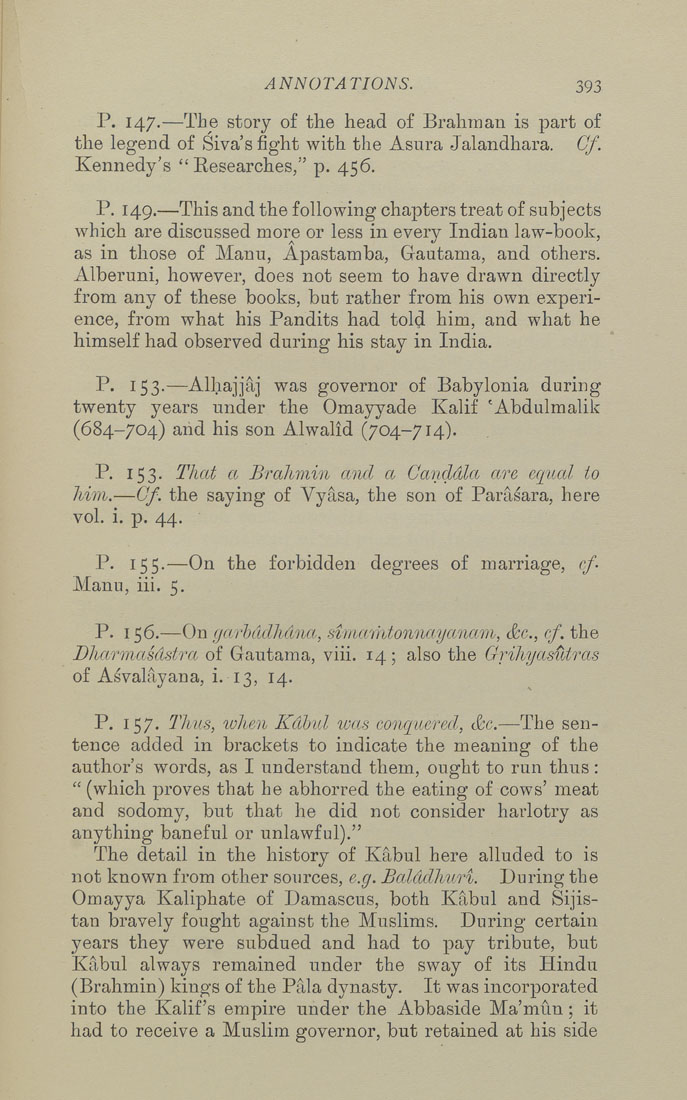ANNOTATIONS. 393
P. 147.—The story of the head of Brahman is part of
the legend of Siva's fight with the Asura Jalandhara. Gf.
Kennedy's " Researches," p. 456.
P. 149.—This and the following chapters treat of subjects
which are discussed mor^e or less in every Indian law-book,
as in those of Manu, Apastamba, Gautama, and others.
Alberuni, however, does not seem to have drawn directly
from any of these books, but rather from his own experi¬
ence, from what his Pandits had told him, and what he
himself had observed during his stay in India.
P. 153.—Alhajjaj was governor of Babylonia during
twenty years under the Omayyade Kalif 'Abdulmalik
(684-704) and his son Alwalid (704-714).
P. 153. Thett et Brahmin and et Ganeldlct are cequal to
him,—Cf. the saying of Vyasa, the son of Parasara, here
vol. i. p. 44.
P. 155.—On the forbidden degrees of marriage, cf
Manu, iii. 5.
P. 156.—On getrbdelhelnet, simariitonnayetnam, &c., cf. the
Dhctrmctsdstra of Gautama, viii. 14 ; also the Grihyasutras
of Asvalayana, i. 13, 14.
P. 157. Tints, when Kdbid was concpuereed, &c.—The sen¬
tence added in brackets to indicate the meaning of the
author's words, as I understand them, ought to run thus:
" (which proves that he abhorred the eating of cows' meat
and sodomy, but that he did not consider harlotry as
anything baneful or unlawful)."
The detail in the history of Kabul here alluded to is
not known from other sources, e.g. Bctldelhuri. During the
Omayya Kaliphate of Damascus, both Kabul and Sijis¬
tan bravely fought against the Muslims. During certain
years they were subdued and had to pay tribute, but
Kabul always remained under the sway of its Hindu
(Brahmin) kings of the Pala dynasty. It was incorporated
into the Kalif's empire under the Abbaside Ma'mim; it
had to receive a Muslim governor, but retained at his side
|








